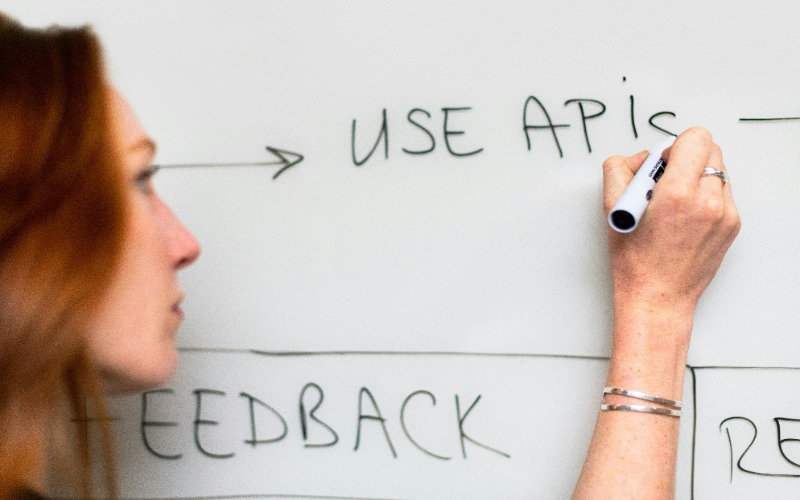Generative AI (GenAI) applications, which have revolutionized diverse sectors from technology to financial services, have become a focal point in the digital era. These applications, adept at creating complex outputs like text and images, are reshaping industries and expanding the horizons of digital creativity and interaction. In 2023, their rapid adoption across various sectors is evident, with businesses recognizing their potential to fundamentally transform job roles and workflows. The significant impact anticipated in knowledge-intensive sectors, which could add up to 9% of global industry revenue, particularly in technology, highlights immense expectations from GenAI.
Bridging from this transformative impact, the crucial role of API (Application Programming Interface) management becomes apparent. APIs serve as the vital conduits connecting GenAI applications with users and systems, facilitating seamless integration, robust security, and optimal performance. In this context, effective API management is not just a technical requirement, but a strategic element for leveraging GenAI technologies. This article will delve into five key aspects of API management that are essential for the success of GenAI applications, including token usage and rate limiting in Large Language Models (LLMs), enhanced responsiveness, load balancing, and unique features tailored for GenAI APIs.
1: Token Usage and Rate Limiting in LLM Models
API tokens play a crucial role in managing access to Generative AI (GenAI) applications, particularly those based on Large Language Models (LLMs). These tokens act as keys, granting permission to use the API and enabling usage tracking for billing and analytics purposes. They are integral in controlling and monitoring the interaction between users and the AI models, ensuring secure and authorized access.
Token usage and rate limiting are essential mechanisms for ensuring fair resource allocation among users and preventing potential abuse. Rate limiting, in particular, helps manage the load on the API server, avoiding overuse of resources by any single user or application. This is especially important in GenAI applications where computational resources are intensive and high demand can lead to performance issues.
A prime example of token usage in LLMs is found in OpenAI’s offerings, including GPT-3.5 and GPT-4. In these models, tokens represent a sequence of characters or symbols and are used to process natural language inputs. The number of tokens can limit the input and output length, with OpenAI charging based on the number of tokens used. For instance, a simple prompt like “Say ‘Hello world’ in Python” is tokenized into 7 distinct parts, each representing a token. This tokenization system and token-based billing are fundamental in managing and billing API usage in LLM applications.
2: Enhanced Responsiveness and Load Balancing
In the fast-paced world of Generative AI, high responsiveness in APIs is paramount, especially when handling real-time data processing. GenAI applications often need to process and analyze large volumes of data quickly, making responsiveness a key factor in their efficiency and user experience. This demand for speed is accentuated by the increasing expectations of users for instantaneous interactions and outputs, whether customer service, content creation, or data analysis.
Implementing effective load-balancing strategies is crucial to manage the high volume of requests and maintain optimal performance. Load balancing involves the distribution of network traffic across multiple servers to ensure no single server is overwhelmed, optimizing resource use and minimizing response times. This can be achieved through various algorithms like round-robin, weighted round-robin, and least connection methods. Each of these strategies has its unique way of distributing traffic, with some focusing on server capacity while others prioritize current server load or response times. AWS, for instance, offers Elastic Load Balancing (ELB), a service that automatically distributes incoming application traffic across multiple targets in AWS and on-premises resources, adapting to the fluctuating demands of applications.
One of the main challenges in managing GenAI APIs is dealing with peak loads, where the number of requests can spike dramatically, potentially leading to system overloads. To counter this, load balancers not only distribute traffic but also monitor the health of servers, redirecting traffic away from servers that are underperforming or down. Advanced load balancing solutions, like those provided by AWS, can dynamically adjust to changing traffic patterns, ensuring consistent performance even during peak times. Furthermore, automatic scaling incorporation within load-balancing systems allows for a seamless increase in resource availability in response to rising demand, ensuring that the system remains robust and responsive under varying loads.
3: Security Measures and Data Privacy
In the realm of Generative AI (GenAI) applications, robust security protocols in API management are indispensable. The nature of these applications often involves handling sensitive data, necessitating stringent security measures. Encryption is vital in protecting data in transit and at rest, ensuring that even if data is intercepted, it remains unreadable to unauthorized parties. Authentication and authorization form the core of access control, verifying user identities and granting permissions based on predefined roles and privileges.
Data privacy and user consent are equally critical. GenAI applications must comply with various data compliance standards to protect user information and adhere to legal requirements. For instance, the Payment Card Industry Data Security Standard (PCI-DSS) is a widely recognized compliance standard that mandates specific security measures for handling payment card data. It includes requirements for maintaining a secure network, protecting cardholder data, managing vulnerabilities, and implementing strong access control measures.
API compliance standards like PCI-DSS ensure that APIs support necessary security and governance protocols. Adhering to such standards is crucial for maintaining the integrity and confidentiality of sensitive data, preventing data breaches, and ensuring user trust.
4: Scalability and Performance Optimization
GenAI applications often experience fluctuating demand, making scalability a crucial aspect of API infrastructure. Scalable API infrastructure is essential to accommodate growth and handle variable loads efficiently. This includes the ability to dynamically adjust resources to meet changing demands without compromising performance.
Performance optimization techniques like caching and optimized data transfer are key. Caching temporarily stores frequently accessed data, reducing the need to repeatedly fetch it, thereby speeding up response times. Optimized data transfer involves minimizing data payload and streamlining communication protocols to reduce latency and enhance throughput.
An example of a scaling option in Azure is the ability to scale an Azure API Management instance in a dedicated service tier by adding or removing units. Each unit consists of dedicated Azure resources with a specific capacity for handling API calls per second. This scalability feature, available in various tiers, allows for flexible adjustment of resources in response to changing API demands.
5: Unique Features of GenAI APIs
Generative AI (GenAI) applications are distinguished by their unique API features, which significantly differ from traditional APIs. One of the most prominent features is their adaptive interfaces, which can dynamically adjust to user inputs and preferences. This adaptability allows GenAI applications to offer more intuitive and user-centric experiences. Personalized responses are another hallmark, where the API can generate customized outputs based on user data and interaction history, making each user experience unique.
Advanced analytics is also a key feature, enabling GenAI APIs to process and interpret large datasets to provide insights and predictions that would be impossible or highly resource-intensive with conventional analytical tools. This capability allows for more sophisticated decision-making processes, powered by deep learning and pattern recognition.
An innovative example of GenAI API capabilities is Fortinet’s FortiGuard, which utilizes GenAI to enhance cybersecurity. FortiGuard leverages GenAI to analyze and predict security threats, offering proactive and adaptive security measures. This application showcases how GenAI APIs can address complex and dynamic challenges, such as cybersecurity, by providing advanced analytical capabilities and adaptive responses. This ability to anticipate and respond to threats in real-time marks a significant advancement from traditional rule-based security systems.
Embracing the Future: A Conclusion
The advent of GenAI and its unique API features marks a paradigm shift in technology. Embracing this innovative technology is not just an option but a necessity for staying ahead in a rapidly evolving digital landscape. Companies and individuals are encouraged to explore and integrate GenAI APIs into their systems, unlocking new levels of efficiency, personalization, and analytical power. The future is here with GenAI – it’s time to step forward and harness its potential.










